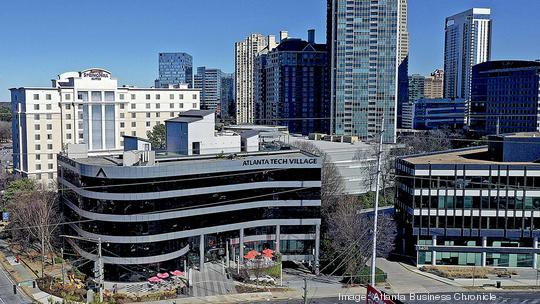
The Covid-19 pandemic has created years of change in only a few months. It has stood every aspect of how we live and work on its head. This crisis has become a call to action for entrepreneurs to reimagine the future of everything — work, health care, cities, education — and during this crisis, entrepreneurs who live and work between the coasts will be the ones who shape it.
During the 2010s, there were more than a hundred billion-dollar exits outside the Bay Area -- about one per month. These exits lay the groundwork for tech ecosystems by returning funds for VCs and attracting more talent. During this decade, VCs also relocated to areas such as the Midwest.
On an episode of the Full Ratchet podcast, Chris Olsen, Co-founder and Partner at Drive Capital, described how he decided to leave Sequoia Capital, in Silicon Valley, and start a VC firm in Columbus, Ohio, because it was the opportunity of a lifetime to start funding entrepreneurs in the Midwest -- a region that is the world’s fifth largest economy, that graduates and retains the most engineers, and that is geographically close to millions of consumers.
By 2019, this thesis began to break through at the national level. According to Crunchbase, the geographic region with the highest median return on investment was in the Midwest, followed by the South, and the city with the greatest median return on investment was Chicago. In 2020 -- a year where 10% of all U.S. economic output got wiped out in a month and the number of VC deals declined -- deal count actually increased in the Mountain West, South, Southeast, Great Lakes and the Midwest, according to the National Association of Venture Capital.
Its report also noted that healthcare hubs such as Boston and Atlanta that have ties to hospitals, research, and universities received increased funding compared to 2019. During the second quarter of 2020, the only regions of the country where deal count did not increase were the Mid-Atlantic (Greater New York City) and the West Coast, showing that entrepreneurs between the coasts are poised to make an impact in the post-Covid world.
Crises on the scale of Covid-19 highlight not only exceptional problems but also exceptional solutions. In 2008, proximity to Internet companies and understanding how the Internet could be a source of economic creation after an unprecedented amount of economic destruction made the Bay Area the place where problems of this magnitude were solved.
This time around, merely being close to Internet companies isn’t going to solve the exceptional problems. They are people problems such as healthcare and education that can’t be solved by a single algorithm or by giving people a platform to click on ads.
These problems will be solved by relationships -- by being close to and understanding your market, your consumer, your community and building links to your universities, hospitals and other local institutions. This is the foundation of economies between the coasts that will position them to solve exceptional problems and capitalize on the next wave of STEM, economic development, and job creation.
Here is a snapshot of a few accelerators, incubators, capital sources and stakeholders that will help these ecosystems take on the post-Covid-19 world.
Accelerators/Incubators
TechStars
- The Boulder-based seed accelerator focuses on giving entrepreneurs beyond Silicon Valley tools to build scalable, thriving businesses.
1871 Chicago
- This Chicago-based incubator supports startups from idea to IPO through more than $150,000 in perks, ranging from SaaS credits to accelerator programs.
Atlanta Tech Village
- The fourth-largest tech space in the U.S. has six programs to empower entrepreneurs to increase the 6,500-plus startup jobs that alumni have created.
Dreamit
- This accelerator program takes applicants from all over the country and gives healthtech, securetech and urbantech companies the resources they need to scale their business.
Embarc Collective
- The Tampa-based entrepreneur education nonprofit offers Florida startups the tools they need to build bold, scalable and thriving companies.
Capital Factory
- It’s the center of gravity for entrepreneurs in Texas, where they can connect with investors, employees and customers through coworking, networking and an accelerator program.
Rev 1 Labs
- This Columbus-based innovation center is where entrepreneurs can interact with the Ohio State community and gain access to investors, offices, labs and manufacturing spaces.
Gener8tor
- The Wisconsin and Minnesota accelerator has 19 programs that aim to connect entrepreneurs, artists, investors and universities and to create jobs in the Midwest.
1863 Ventures
- It’s a Washington, D.C., accelerator whose Emerge, Pipeline and Accelerate programs focus on female and underrepresented founders. This year, it saw a record number of applicants to be an entrepreneur in residence.
Lighthouse Labs
- This Richmond accelerator supports software and health-focused companies by investing $20,000 in equity-free funding. Ninety-two percent of its alumni are still operating or acquired.
Queen City FinTech
- This is a 12-week Charlotte accelerator program focused on helping founders become better founders through mentorship, a B2B pilot-testing program and up to a $40,000 cash infusion.
Venture Capital
Urban Innovation Fund
- This early-stage VC firm invests in startups all over the country that are building the future of cities and Fintech.
Revolution
- The Washington, D.C.,-based VC firm makes technology investments in the Southeast and Mid-Atlantic.
Venture South
- This South Carolina angel group and early-stage VC firm exclusively invests in startups in the Southeast.
Florida Funders
- This hybrid VC firm and angel syndicate has invested more than $30 million in Florida startups.
Hyde Park Venture Partners
- It’s a Chicago-based VC firm that invests in early- and growth-stage startups, most of them in the Midwest.
Engage Ventures
- The Atlanta-based early-stage and seed VC firm invests in software companies between the coasts.
Arthur Ventures
- It’s a Minneapolis-based VC firm that invests in B2B software companies outside of Silicon Valley.
Next Coast Ventures
- The Austin-based VC firm invests in early-stage technology companies between the coasts.
Ohio Innovation Fund
- It’s a Columbus-based VC firm that invests in early- and growth-stage technology companies in Ohio.
Idea Fund Partners
- This early-stage VC firm invests in technology companies in North Carolina.
Cincy Tech
- One of the most active seed funds in the Midwest, it invests in human health and technology startups in Ohio.



